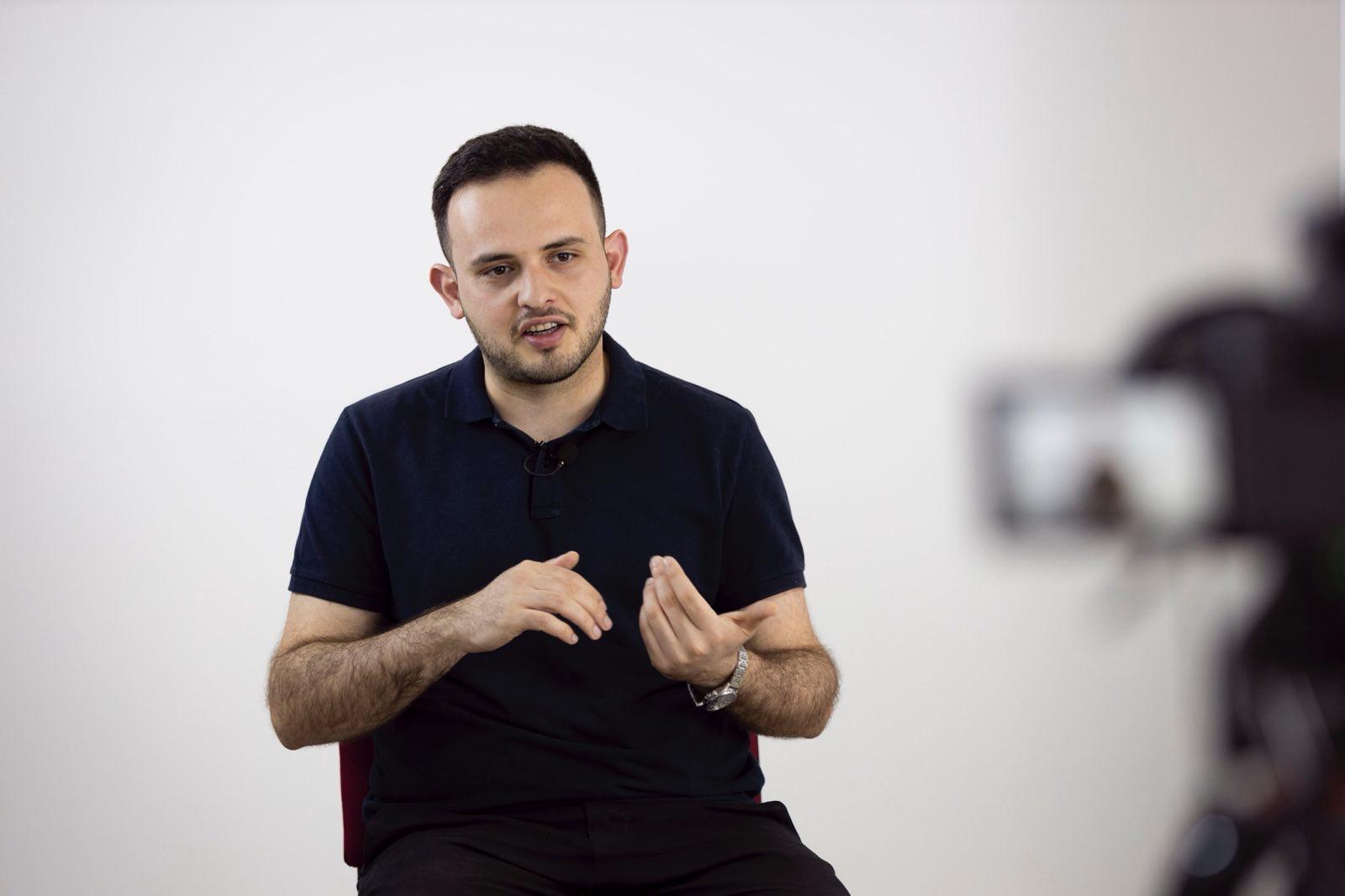Nargiz Mukhtarova is a women’s rights activist and researcher in Azerbaijan.
Azerbaijan is often referred to as a typical example of a rentier state. This model of governance with a political economy reliant on fossil fuel exports has not only created grave climate and social justice issues, but it also offers a shadowy prospect for the country’s sustainable development.
Moreover, the abundance of natural resources has enabled reprisals against those who speak out about the grim future to come. My husband, Farid Mehralizada, is one of those who faced such a consequence – and this happened just a few months before COP29.
On an ordinary morning, on May 30 this year, Farid gave me a gentle hug, followed by a spark of excitement about our baby to come in a few months. Rushing to leave home for work, little did he know that he would not return anytime soon and be with me on the day of birth.
In a warring world, Azerbaijan’s COP29 truce appeal draws fire as “PR exercise”
That morning, a few plain–clothed men forcibly detained Farid in the streets of central Baku, placed a bag on his head, and pushed him into a car for a ride full of threats. Farid was interrogated for two days before he was sent to trial over an accusation of smuggling in connection to a broader and politically motivated criminal case against critical media. Although the charges were not supported by firm or credible evidence, the court handed him a pretrial detention. Farid is now facing 12 years in jail with additional spurious charges introduced against him.
Farid is a renowned economist who has rigorously advocated for social justice and climate-friendly policies. Alongside his job as an economic analyst for Radio Free Liberty, he regularly provided analysis to the Baku Research Institute and commentaries to independent media of the country, even as restrictions on free speech have significantly increased over the past years.
Known for his critical analysis of Azerbaijan’s dependence on oil and gas, he highlighted the nation’s economic vulnerabilities – exacerbated by unresponsive governance – while advocating for climate action and sustainable practices.
“Chronic” reliance on fossil fuels
“One of the little discussed issues is climate change,” Farid stated in an interview with Voice of America, emphasising that while climate issues are often talked about in future terms, they are already a pressing reality.
Unlike many policymakers who present climate change as a distant concern, Farid argued that its effects are already visible and have significant consequences for both the environment and society. He pointed to rising droughts, which threaten agriculture and reduce productivity, leading to the threats of increased poverty and food scarcity.
Farid deemed Azerbaijan’s dependence on hydrocarbons as a “chronic problem” that discourages diversification – a necessity for ensuring the welfare of Azerbaijani citizens, and for fostering a green economy. In 2022, Farid pointed out that 92 out of every 100 dollars earned through foreign trade came from the oil and gas industry, warning that such extreme dependence was both unsustainable and dangerous for Azerbaijan’s economic future.
Azerbaijan pursues clean energy to export more ‘god-given’ gas to Europe
A significant aspect of Farid’s critique revolved around water resource management. In a country facing drought, Azerbaijan’s outdated irrigation systems lead to the wastage of one-third of its water resources – a statistic he found alarming.
He argued that this inefficiency reflects a broader failure to address basic infrastructure needs critical for climate resilience. Without modernising these systems, he warned, Azerbaijan would face severe water shortages, jeopardising agricultural productivity and increasing vulnerability to climate change.
Not an isolated case
Farid believed that investments in sectors such as technology, agriculture and renewable energy would foster a more resilient economy less reliant on fluctuating oil markets. By promoting such solutions, he implicitly challenged the government’s focus on oil and gas revenue as the backbone of its economy.
In doing so, he may have been perceived as undermining established power structures, as his economic solutions indirectly threatened the status quo. Farid’s arrest, in this context, seems to reflect the government’s discomfort with his calls for reform and diversification.
In Nagorno-Karabakh, Azerbaijan’s net zero vision clashes with legacy of war
Farid’s case is not an isolated one. Over the past year, a number of journalists, researchers and human rights defenders have faced repercussions for their critical work. Several independent media outlets and NGOs have been targeted with arrests in an ongoing crackdown, including Abzas Media, with which Farid was accused of collaborating.
Yet, what happened to Farid is reflective of risks faced by all activists and experts advocating for climate justice and social welfare in Azerbaijan. As his case demonstrates, the fight for climate justice and transparency often intersects with broader political struggles, underscoring the need for systemic change in both environmental policy and governance. Thus, COP29 attendees should recognise these struggles – and extend their solidarity with those who have become victims.
